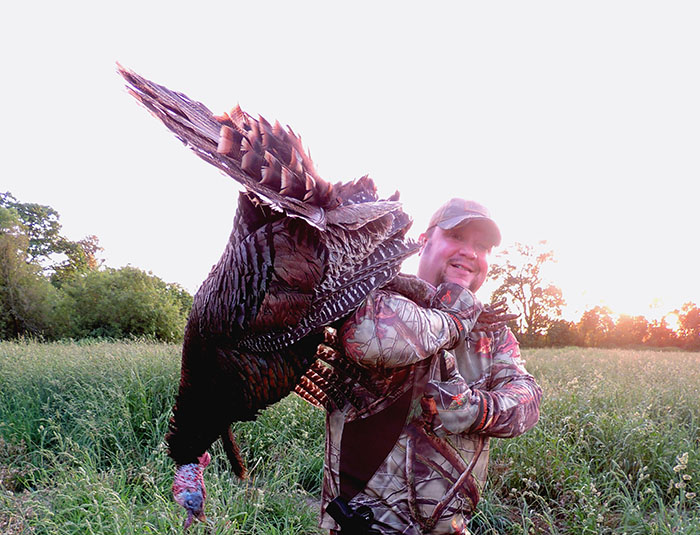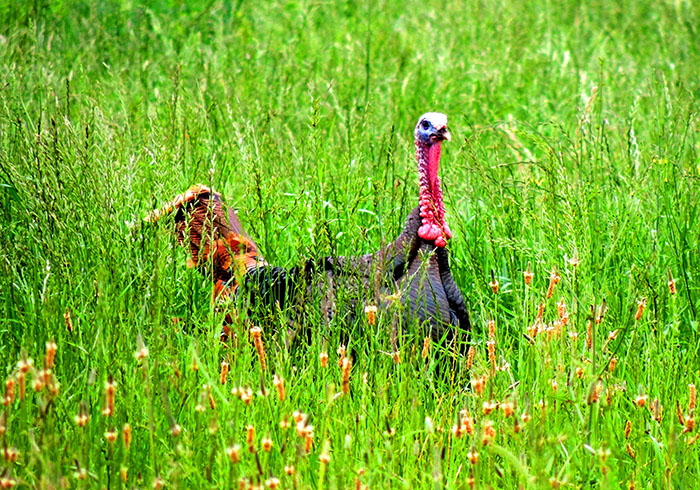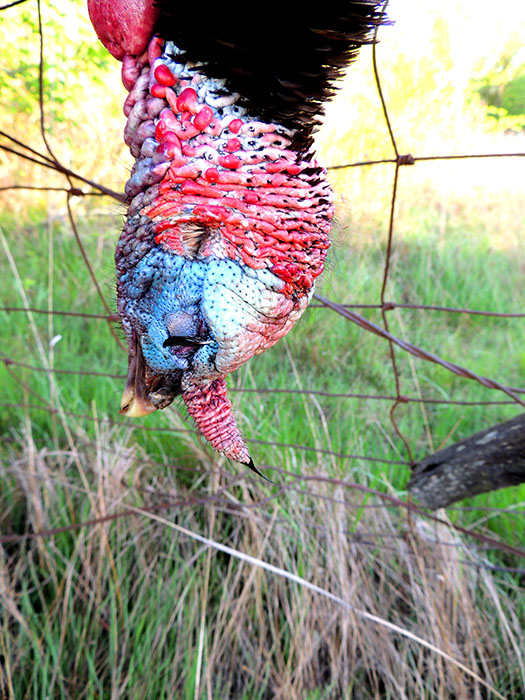5 Turkey Musts For This Coming Season Leave a reply

Make sure to have the scales tipped in your favor come this April and you’ll surely find yourself packing more birds out of the field. (Troy Rodakowski)
By Troy Rodakowski
In general, extreme weather patterns are not beneficial for wild turkeys. In particular, winters with deep snow at lower elevations can impact overwinter survival when turkeys can’t dig down for their favorite foods. “We have actually seen them stay in the roost for days at a time when snow is too deep to feed,” says Mikal Moore NWTF Biologist for the Pacific Northwest. The other big driver of turkey population’s dynamics is wet springs, which can inhibit hatching success. For those poults that do hatch, protein-rich insects will be plentiful in wet years, a critical component of bone, muscle, and feather growth in young wild turkeys,” adds Moore.
The yin and yang of a severe winter in the Pacific Northwest may keep some from hunting turkeys while others will find success. My advice is that there’s never a better time than the present to pursue these handsome birds.

A spring gobbler searches through the grass for other turkeys while listening carefully for hens and keeping an eye out for danger. (Troy Rodakowsk)
Over the years I have made plenty of mistakes and learned some valuable lessons when hunting turkeys. Here are a few tips of what not to do on opening day to help you be a more successful turkey hunter.
1.) Don’t expect to pull into a place that you have seen turkeys and find them in the same location during season. This has happened to me a few times and is a lot like going to a job interview without your resume. Locating a prospective spot, not taking the time to scout it out and still hoping for positive results just doesn’t work. Unfortunately, most of us have been in this position at least once, had a lack of time to spend in the woods prior to season and hurried out on opening day only to find disappointment. The lesson here is get out before season, get out often, scout and you will be rewarded with more birds for the freezer.
2.) If you hear a gobble don’t get excited and over call. Hunters need to remember that it is natural for a hen to go seek out a tom. We as hunters are trying to convince these birds the opposite of what comes naturally to them. When first encountering a bird I like to gently test him out with just some light yelps and purring. If he doesn’t respond then hit him with a couple cutts and cackles to see if he will shock gobble.
I like to mimic what a hen is saying. If she yelps at you yelp right back with the same tone and cadence. If she cackles and cutts make sure to do it right back at her, make her mad, you are there to steal that gobbler from her.
3.) After a long morning, find a tree, take a short nap, get a bite to eat, drink some water and relax. I have harvested countless birds in the afternoon and just prior to sunset. Many hunters get frustrated and call it a day after hiking a few miles without hearing any gobbles or even seeing a bird. Remember, most of the breeding occurs in the morning within the first few hours after fly down. Gobblers urge to breed and their potency is higher during the morning hours and they will usually, try to locate a receptive hen immediately after fly down. Afternoon hunts are great because many of the hens will return to their established nesting sites to lay and incubate eggs. This leaves Mr. Tom lonely and in search for any hens that are still wandering about and feeding.
4.) Be prepared to cover lots of ground. Nesting hens usually stay within a radius of 1 mile spending the day feeding, laying and sitting on eggs. Gobblers on the other hand can cover ground often times wandering up to 2 miles from their roosting site looking for receptive hens. Hearing a gobble over a ridge doesn’t mean you will find that bird in the original location that he sounded off from. I remember one year I contacted a bird and ended up killing him 3 miles from where I had first heard him. Wear good base layer clothing and plan on sweating a little.
5.) When hunting from a blind make sure to know what stage of the breeding cycle the birds are in. Don’t “over –do” your decoy spread and make sure not to over call. Larger breeding groups of turkeys and birds at fly down are very vocal but solo gobblers are not always keen to radical calling techniques. Infrequent calling and silence can be exactly what a bird is looking for as it stirs their curiosity and seems more natural especially later in the day when birds are a somewhat less vocal.
Troy Rodakowski is an award winning outdoor writer based out of Western Oregon.
The Outdoor Line
710 ESPN Seattle


